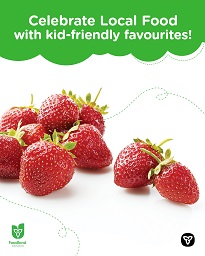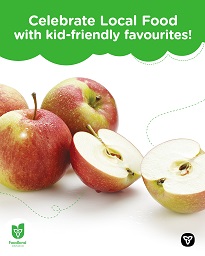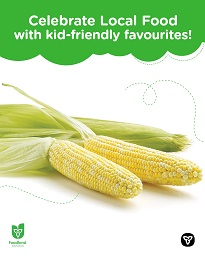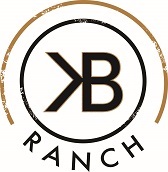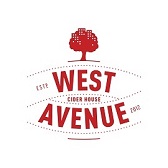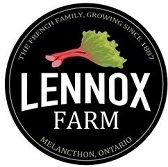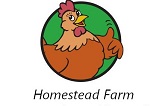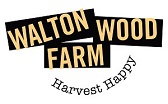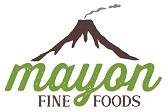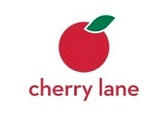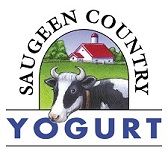Ontario’s local food report, 2021 edition
Learn about the people, businesses and organizations successfully working to strengthen Ontario’s local food economy.
Minister’s message
Throughout the COVID‑19 outbreak, Ontarians have witnessed the incredible commitment of our farmers and food processors who have worked tirelessly keeping our food supply chain strong, even when facing the serious challenges of this pandemic. Our agri-food sector has kept grocery store shelves full over the past year and I’m happy to see Ontarians have become more aware of just how crucial farmers are to our daily lives and to our economy.
During this time many people have cooked more with their families, started baking or gardened more, all of which has increased food literacy.
Ontario farmers grow more than 200 different commodities on 49,600 farms across the province. Even during the pandemic, 65% of the food produced in Ontario was consumed right here at home.
When we choose local food, we are choosing Ontario – we are choosing to support our farmers, our local communities, our food processors and all the businesses across the local food supply chain system that rely on us to buy local.
With more and more Ontarians recognizing the importance of food and products made right here at home, many organizations are leading efforts to engage young people in agriculture.
Examples of some dynamic agri-food literacy programs include:
Pfisterer Farm’s Farm School Agrication values knowing exactly how and where our food comes from. Creating an online program, this Wellington County farming family seeks to teach young students about local agriculture. Creating 1-minute educational videos that tie into the grade 1-3 Ontario curriculum, the Pfisterers are making it easy for teachers to incorporate them into their lesson plans. The ‘school’ furthers engagement between farmers and students by answering classroom questions in video responses. Did you know that Mammoth donkeys live with cattle to protect them from danger and can live until they are 50 years old? Visit the website to learn more including how to make butter at home.
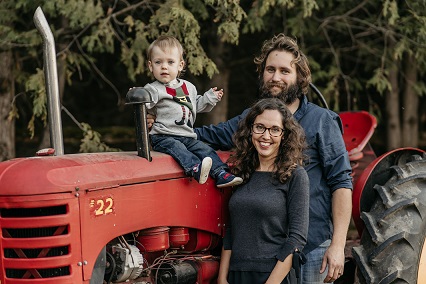
Jessica, Ryan and Boone Pfisterer
Forsythe Family Farm’s Lessons from our Farm takes children on a virtual field trip encompassing the sights and sounds of their farm located in Durham Region. They have created from farm to tablet packages of educational videos that allows kids to virtually visit their farm animals, explore the farm and fields and investigate the journey of food - from farm to fork. Did you know that dirt is what is found under your nails and soil is what you dig? What is the difference between soil found in fields versus soil found in forests? Visit the website to learn more!
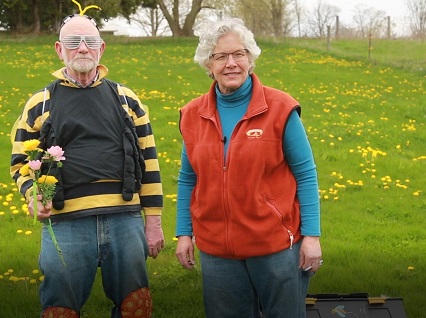
Jim and Leslie Forsythe
Ontario’s agri-food system is dynamic and is made up of dedicated and skilled people who produce the foods we enjoy. For me, it’s important that Ontarians understand and appreciate where their food comes from, and that young people learn about this essential sector.
They are the farmers, researchers, equipment specialists, cheese makers, butchers and chefs of tomorrow.
As we continue to work through the COVID‑19 pandemic, our government is supporting the agri-food sector’s work to maintain the strength of our food system, and to promote the many good things that grow in Ontario. In years to come, when historians look back at the COVID‑19 pandemic and Ontario’s response to it, there will be many stories to tell about how people, organizations and businesses made their mark. I believe the achievements of the province’s local food heroes and the resilience of our agri-food sector will be among these stories, and our knowledge of local food will be all the richer for it.
I cannot thank our agri-food family enough. They have shown up every day of this pandemic growing and processing food to keep our shelves stocked and food on our kitchen tables. I share a deep appreciation to the organizations, farm families and educators working together to teaching our youth how and where their food comes from.
Ernie Hardeman, Minister of Agriculture, Food and Rural Affairs.
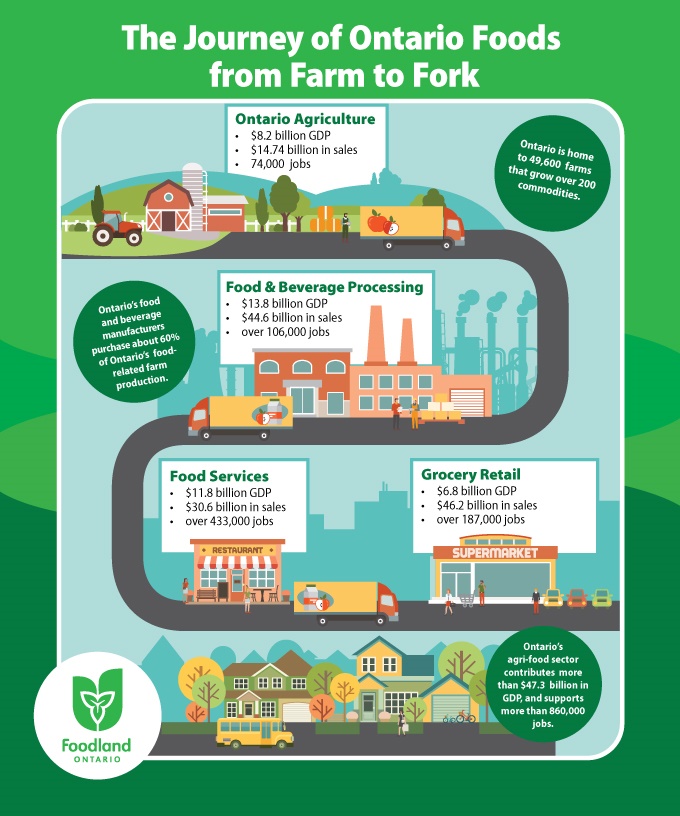
Introduction
Ontario’s local food system is a key economic driver for our province and in the past year, we have experienced the need for and the importance of a strong local food supply chain. Our agri-food heroes have continued to ensure that Ontarians can access local food in communities across the province, even during the unprecedented challenges caused by the COVID‑19 pandemic.
Through sudden shifts in consumer shopping patterns, our agri-food heroes have worked diligently to keep local food available for Ontarians across the province.
With increased media attention on essential workers and food supply during the pandemic, there is even more awareness of local food now, and greater understanding of the key role that Ontario farmers, food processors, retailers and transporters play in keeping our food supply system strong.
This year’s Local Food Report 2021 explores the importance of food literacy and how it ties in through all three goal areas proclaimed by the Local Food Act, 2013:
- Local food literacy – Increase the number of Ontarians who know what local foods are available.
- Local food access – Increase the number of Ontarians who know how and where to obtain local foods.
- Broader public sector access – Increase the number of Ontarians who prepare local food meals for family and friends and make local food more available through food service providers.
Local food literacy
Knowing what is grown and made in Ontario is the first step to being able to make a choice to buy local.
During one of the most challenging years in our history, it has been more important than ever to buy local and support farmers, food processors, and small and large food businesses across the local food supply chain.
Minister’s Local food literacy virtual roundtable
March is Agricultural Literacy Month in Canada and the month provided the perfect opportunity for Ontario’s Minister of Agriculture, Food and Rural Affairs to bring food literacy leaders from across the province together for a virtual roundtable discussion. The minister heard how the pandemic has impacted consumers’ knowledge and awareness of local food in Ontario. The discussion highlighted both the challenges and opportunities as a result of the COVID‑19 pandemic.
The early days of the pandemic saw temporary shortages with some supplies which highlighted a greater awareness of, appreciation for and an interest in Ontario’s agri-food system. Everyone agreed that now, more than ever, it is important for consumers to understand how our local food system works – what is seasonally available, where to buy it and how to prepare meals with locally sourced ingredients. Many local food leaders spoke to the benefit of pivoting their resources to an online format, allowing them to be more accessible during the stay-at-home orders, as well as meeting the need for consumers looking for recipe resources and teachers looking for curriculum-linked resources.
Minister Hardeman is committed to bringing together diverse sector leadership together to increase collaboration and to find innovative solutions to increase local food literacy more regularly to build and coordinate initiatives together.
Local food literacy spotlight - AgScape
The Ontario government is investing up to $400,000 in AgScape, a leader in delivering curriculum – linked resources about agriculture and food. This investment will support:
- the increase of agri-literacy,
- awareness of careers in the agri-food industry and
- prepare students and youth who are interested in a dynamic career in the agri-food industry.
Through this partnership, Ontario teachers can access more than 100 free lesson plans that help students think critically about agri-food issues, the importance of supporting their local economy and expose students to the vast career opportunities available within Ontario’s dynamic agri-food sector.
AgScape delivers several programs including the successful Teacher Ambassador Program with interactive lessons to grade 7-12 classrooms (both virtual and physical) by Ontario certified teachers with a passion for agriculture, food, health and the environment. At the beginning of the 2020 school year, AgScape pivoted to online learning options and that program has become so popular, hiring 10 new Ambassador teachers to deliver virtual classroom lessons.
In March of 2020, AgScape launched the Virtual Camp Experience which continued to be a highlight during 2021 as a way for parents to keep their kids learning while away from the classroom by offering interactive activities that explored food and farming topics including local food. This program continues to provide exciting online learning opportunities for students outside the classroom.
I am passionate about agriculture and food, whether it is our locally produced turkey that we grow on our farm for Canadian consumers, or agribusiness companies that I work with at AgCareers.com and CareersInFood.com helping connect with building strong teams; I value the people as part of our high-quality food system through to the consumers who enjoy safe, fresh and plentiful food for their families to enjoy, just like my own family. My role as chairperson at AgScape allows me to continue these relationships full circle in sharing the importance of our local agri-food sector, the innovations and opportunities it has to offer with the next generation.
Kathryn Doan, AgScape Chairperson

Each year, AgScape in partnership with Canada’s Outdoor Farm Show, recognizes an Ontario teacher for their achievements in teaching students the importance of agriculture. In 2020, they recognized Jack Verrips, a teacher at College Avenue Secondary School in Woodstock who developed an Agriculture Specialist High Skills Major program at his school. Mr Verrips routinely engages his students by growing produce that gets donated to the local food bank, teaching students about animal health and welfare with live animals and taking students on local farm tours.
As an agriculture teacher I feel that one of the most important things that we can do is educate our young people so that they know that agriculture is the basis of almost every part of their life - from the clothes that they wear to the food that they eat. With the resources and support from AgScape I can help prepare them for a future in agriculture so that they can help Canada maintain its place in the world as a leader in this industry.
Jack Verrips, Horticultural Teacher, College Avenue Secondary School

Learn more about AgScape and their education program.
Foodland Ontario
One of the many ways the Ontario government continues to help Ontarians build their food literacy is through providing consumers the opportunity to identify locally grown and made food through the Foodland Ontario program. When shopping online or in grocery stores, farmers’ markets and at on-farm markets, look for the Foodland Ontario logo to know you are buying what is grown and made right here at home. You can also find the Foodland Ontario logo on many restaurant menus of FeastON certified businesses so you can continue to support local businesses.
The Foodland Ontario logo can be found on a variety of products including:
- milk
- eggs
- fruits
- meat
- vegetables
- specialty products like maple syrup and honey
There are more than 1,700 businesses who use the logo with pride to help give customers the comfort of knowing their product is Ontario grown and made.
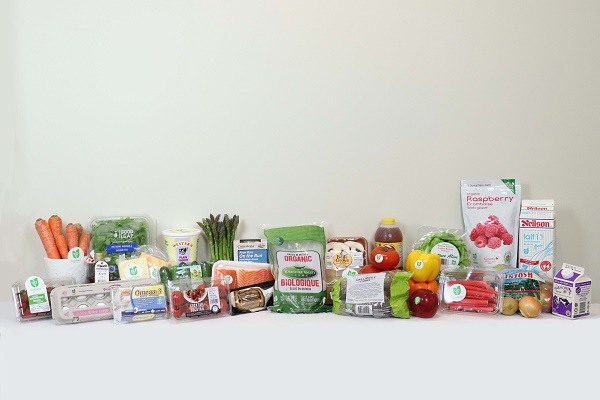
Foodland Ontario’s website is a space to learn about the good things grown in Ontario. To find out what produce is in season, there is a clear, easy to access calendar known as the availability guide. Access to more than 875 recipes are currently available in English and French that use local produce and ingredients. The Kids Corner section of Foodland Ontario’s website provides fun food facts, brain teasers and kid-friendly recipes providing a fun, hands on learning experience for families. This is an opportunity for families to expand on food literacy by learning about fruits, vegetables, grain, dairy and meat.
Local food spotlight – Chicken Farmers of Ontario
As Ontarians adjusted their everyday routines during the pandemic, including grocery shopping habits, Chicken Farmers of Ontario (CFO) launched its COVID-19covid 19-Information 'Chicken as Usual' campaign. The campaign was centered on two key pillars:
- Ontario chicken farmers remain hard at work to ensure the high-quality chicken that their customers love will always be available.
- To reinforce the family connection – from our farm to your family – we’re in this together, so let’s enjoy the renaissance of home cooking and at-home-dining during these challenging times.
The top 10 chicken breast recipes are great examples of some of the delicious home cooking that so many Ontarians are enjoying around their dinner tables every night.
Chicken Farmers of Ontario (CFO) represents more than 1,300 family run farms that collectively ensure Ontario consumers enjoy a reliable, safe and high-quality supply of Ontario-grown chicken. The broader sector is made up of not only chicken farmers, but chick hatcheries and chicken processors that employ more than 21,420 people and contribute more than $3.7 billion annually to the Ontario economy.
"At CFO, we pride ourselves on our commitment to raising safe, healthy, high quality Ontario-grown chicken,” said Ed Benjamins, CFO Chair. “While feeding consumers across the province has always been a priority, there’s great fulfillment in knowing that our contributions and those on behalf of our industry stakeholders are benefiting the economy and communities in Ontario.”
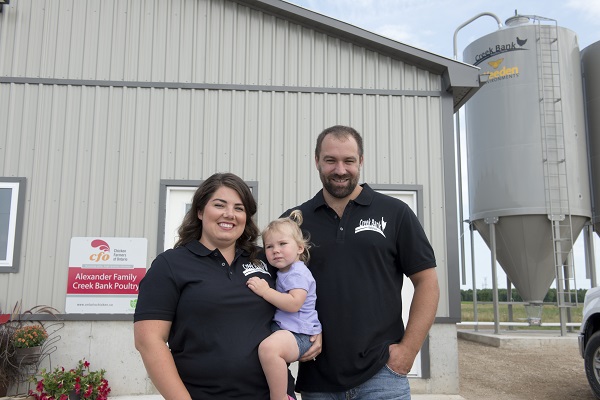
Orrie, Courtney and Leah Alexander are multi-generational chicken farmers who participated in the COVID-19covid 19-Information 'Chicken as Usual’ campaign.
Contributing to Feed Ontario
During the COVID‑19 pandemic, CFO has ensured that families in need continued to have access to food by donating more than 1.6 million chicken meals to local food banks. Additionally, CFO made a financial contribution of $25,000 to Feed Ontario at the outset of the pandemic to help aid in their Emergency Response Program, which provided pre-packaged emergency food boxes to food banks across the province. The donation helped Feed Ontario provide 17,500 meals and snacks to 225,000 people.
Ontario Edible Education Network
Another notable mention is Sustain Ontario's Ontario Edible Education Network who encourages children and youth to grow, cook, eat, celebrate, and learn about healthy, local and sustainably produced food. The network brings like-minded groups of people together to share ideas, experiences and resources that engage kids with the food they eat.
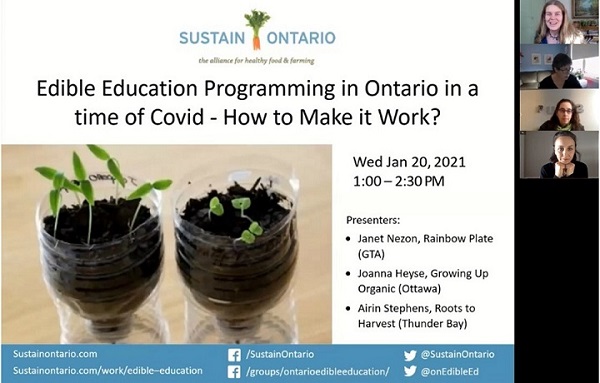
Janet Nezon from Rainbow Plate, Joanne Heyse from Growing up Organic and Airin Stephens from Roots to Harvest conduct a webinar to share innovative solutions to make edible education work during the pandemic.
Local food access
Knowing where you can purchase local food makes it easy to choose for you and your family. Although in-person shopping at conventional grocery stores and markets is still the favoured way for consumers to shop, new ways of purchasing food, such as e-commerce platforms, have been brought to the forefront this past year. Online shopping requires greater promotion to remind consumers to support businesses in their local communities and to take advantage of these new buying channels.
Organizations like the Food Day Canada helps Ontarians explore Canadian flavours through tasting, grilling or cooking meals using only Canadian sourced food. It is an annual celebration to praise our:
- farmers
- fishers
- chefs
- food researchers
- home cooks
This year on July 31, 2021 we will celebrate Ontario’s flavours and honour Food Day in Canada’s founder, Anita Stewart, who passed away in 2020. Anita was extremely passionate and believed “Canada is food and the world is richer for it.”
Ontario government supports local food businesses
Understanding what is grown and made in Ontario is the first step in local food literacy. The next step is knowing how and where to find it. During the pandemic, many local food businesses needed support and the government stepped in to ensure that Ontario’s food supply chain remained strong so that consumers who knew they wanted to buy local food could continue to support local farmers, food processors, restaurants and the many other local food businesses that exist across the province.
Supporting local restaurants and small businesses
To provide relief for local restaurants and other businesses impacted, our government announced $300 million to help offset fixed costs, including property taxes, hydro and natural gas bills.
To help small businesses that were required to close or significantly restrict services under the provincewide shutdown, our government also supported businesses with two rounds of the Ontario Small Business Support Grant which delivered an estimated $3.4 billion to approximately 120,000 small businesses in Ontario. These funds are helping Ontario businesses through this difficult time while protecting jobs across the province.
The government’s Main Street Recovery Plan continues to support small businesses by:
- committing to permanently allow licensed restaurants and bars to include alcohol with food as part of a takeout or delivery order
- permanently allowing 24/7 deliveries to restaurants
- supporting the distribution of local food and food products by increasing the range of products sold at the Ontario Food Terminal
- providing $57 million with federal partners through the Digital Main Street program and creating new Digital Main Street squads to help small businesses grow online
- launching a new portal to assist small businesses to quickly find the supports and information they need.
Ontario also launched a new "Support Local" marketing campaign through Destination Ontario, an agency of the Ministry of Heritage, Sport, Tourism and Culture Industries. The campaign was designed to instill a sense of pride of place and encourage people to safely be a tourist in their own communities. It encourages people to "show your love for local" by exploring new and creative ways to reconnect with the unique small businesses, such as food retailers and restaurants, and places that make the province's communities special.
Local food spotlight – Agri-Food Open for E-Business initiative
So much about daily living has shifted because of COVID‑19 pandemic protocols. When it comes to staying home and staying safe, Ontarians wanted more options to source local food. At the same time, agri-food businesses had products to sell but needed new ways to reach their customers.
Looking to connect farmers and food businesses with consumers as part of our efforts to support local food and maintain a strong food supply system, the Canadian and Ontario governments launched the Agri-Food Open for E-Business initiative during the early days of the pandemic. Through the Canadian Agricultural Partnership, more than $3.2 million was invested in over 650 businesses to establish or expand their online presence during the pandemic to provide consumers with greater access to more local food when shopping from home.
To celebrate the anniversary of the program, the Ontario government launched an interactive map that supports the increase of local food literacy by helping the businesses from the initiative connect with local consumers.
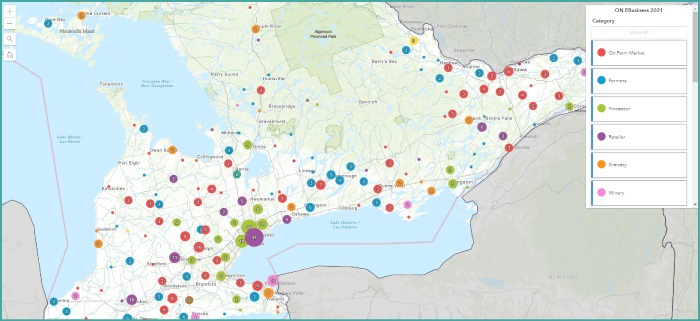
Visit the map of Ontario agri-food businesses to find:
- local food producers
- farmers’ markets
- retailers
- garden centres
- greenhouses
- nurseries
- agricultural associations close to home
Agri-food businesses
Located in Carp, Ottawa Valley Grain Products is a family operated mill that received $5,000 to enhance its online presence as well as e-commerce upgrades for its customers to maintain and grow sales; manage the demand of products; and provide additional means of consumer/product fulfillment. Ottawa Valley Grain products began in 1929 when founder Nat Lindsay purchased a small flour mill in Renfrew, Ontario. Today, the company is a 4th generation family-owned operation that is proud of contributing to the local economy for nearly 90 years. Customers can visit the online shop to purchase flour, grains and merchandise and have them shipped directly to their homes.
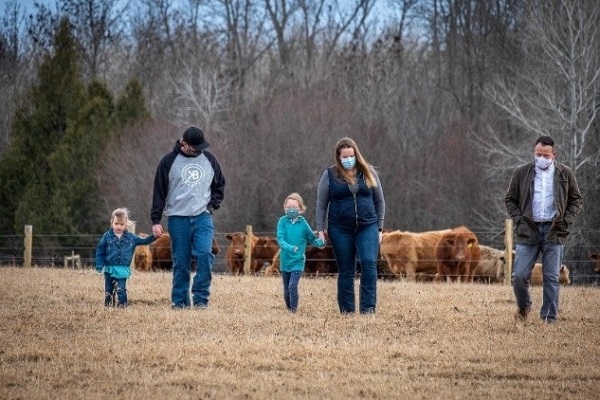
Kate, Brodie, Kinley, Kerry Gross and Greg Rickford, MPP for Kenora-Rainy River at KB Ranch
Located in northwestern Ontario, KB Ranch is a family owned and operated ranch built from two hearts, circled by family and a passion for farming that is dedicated to producing top quality beef. KB received $5,000 to develop a website, create marketing materials and design graphics (branding) to enhance efficiency and support its business during COVID‑19 restrictions. Visit KB Ranch’s online store to source meat boxes, steaks, roasts and specialty items. There are even dog bones for the family pet and your work-from-home four-legged co-worker.
Located in Freelton, West Avenue Cider is an artisanal company making small-batch, hard cider from 100% fresh pressed juice made from Ontario heritage apples. Awarded Best Cider in Ontario several years running, their cider is a nod to traditional country flavours with a bit of big-city fancy. Using heritage apples that are rare in Canada, they planted thousands of trees in their Orchard to ensure the cider remains authentic forever. West Avenue Cider received almost $3,600 to design a website and upgrade its online store and delivery systems to meet its customers’ needs and to support their business during COVID‑19 restrictions. Visit the online store to order cans, bottles, growlers, variety packs, merchandise or iced cider - not to mention house-made honey, preserves, eggs, pies, sausage rolls and butter tarts.
Located in Dufferin County, Lennox Farm Limited is a 5th generation family-owned and operated farm growing a variety of nutritious and delicious produce. They are advocates of working in collaboration with fellow farmers and local agribusiness to improve the local economy and provide the community with healthy, fresh local food. Lennox Farm received $2,500 to purchase equipment and make minor facility modifications to help retain and/or expand sales. Visit the online store to order pantry items like Lennox Farm fruit jams and granola, caramelized onion dip, homemade rhubarb ice cream, or pesto. The store is a one stop shop for all your grocery needs from local produce, dairy, meat, pantry items and prepared meals.
Located in Orangeville Fire in the Kitchen, makes specialty seasonings and spice blends for meat and vegetable dishes. Products are MSG and gluten free with no fillers or preservatives used for barbequing, smoking, oven roasting, broiling, stove top cooking, steaming, frying and slow cooking. Fire in the Kitchen received $5,000 to launch an online marketing campaign for product promotion and to set up an e-commerce site for domestic and US online sales. Visit Fire in the Kitchen to learn about all the different spices, rubs and sauces available and then purchase through their Amazon.ca store to ship for yourself or to friends and family in Ontario and across the country.
Located in Newmarket, Dick Duff’s Organic Jerky makes organic jerky infused with flavours like sweet chipotle or Dijon mustard. Dick Duff began crafting the recipes back in 1989 selling to friends and neighbours for over 2 decades before partnering with entrepreneurs Jeremy and Jonathan Anderson to help reach a wider audience. Dick Duff’s received $5,000 to conduct a strong digital marketing strategy and online advertising campaign to direct new customers to their revitalized website and e-commerce platform in order to support their business during COVID‑19 restrictions. Visit the online store to purchase single or multi packs of jerky shipped free of charge for orders over $40.
Located in Woodbridge, Quality Cheese first opened in 1999. Over two decades later, this family run business is now a manufacturer, distributor and retailer of Italian specialty cheese and cheese snack products. Quality Cheese received over $4,500 to purchase new technology and POS machines for online orders and third-party vendor web design, project management and training to increase capacity for online sales. Curbside pick-up options are now available for ricotta, mozzarella, buffalo, provolone, mascarpone, or firm/fresh specialty cheese.
Located in Woodbridge, Leone Fine Foods is a locally owned, family-operated traditional butcher shop offering a wide range of meats and prepared food. They have launched an online store, accommodating pick-up orders as well as delivery. It received over $4,400 to enhance its website to include e-commerce capabilities to help retain and/or expand sales with the primary objective of bringing products to customers. Call, visit, or order online a variety of raw or prepared meats and various food items. The top menu items are Certified Angus Beef, marinated meats, veal, pork, and lamb.
Located in Sault Saint Marie, Mill Market connects local farmers, ranchers, fishers, artist and artisans in northern Ontario with consumers to strengthen the local economy and nurture healthy communities. Mill Market received over $4,600 to hire a third-party for website development to allow for online e-commerce, marketing and promotion and the development and implementation of curbside pickup for customers.
Located near the Holland Marsh, Homestead Farm has been family run since 1978 and offers fresh Ontario eggs to a wide variety of customers. The farm is a Registered Egg Grading Station and received over $1,100 to establish an online store and ordering system to allow curbside pick up to address customers’ needs and support its business during COVID‑19. Visit the online store to place an order for a dozen or a tray of eggs from brown, white, free run, organic to pasture.
Local food spotlight - Sobeys
The Ontario Ministry of Agriculture, Food and Rural Affairs’ Vendor Engagement Program has connected over 3,000 food and beverage processors to retail and food service operators across Ontario since its creation. It is estimated that this program has contributed to over $50 million annually in local sales for Ontario businesses since the program launched.
Sobeys is one example of a retailer that has participated in the program since 2018. To date, more than 150 new Ontario suppliers have been introduced to Sobeys resulting in 200 new Ontario products being listed in stores. On May 11-12, 2021, Sobeys, as part of their ‘Go Local’ programming, hosted a two-day virtual buyer program and educational seminar. The buyer program was open to all Sobeys and Foodland grocery stores to review products, place orders and have live chats with over 90 Ontario food and beverage suppliers. Bringing new Ontario products to retail markets like this means that Ontario consumers can enjoy more of the good things grown and made in Ontario. Knowing what is grown in season is just as important as being able to find locally grown and made products at grocery stores.
Starting as a small, family-owned business ourselves, supporting local has always been part of Sobeys Inc.'s philosophy. Our local suppliers are integral members of the Sobeys Inc. family and we are proud to work together and grow together.
Sheri Evans, Local Development Manager, Ontario Field Merchandising, Sobeys

Celebrating local women entrepreneurs
In February 2021, Sobeys, in partnership with Nature Knows, launched a new Fab Female Box filled with over 17 products from 12 female-founded Ontario businesses to celebrate local women entrepreneurs as part of International Women’s Day.
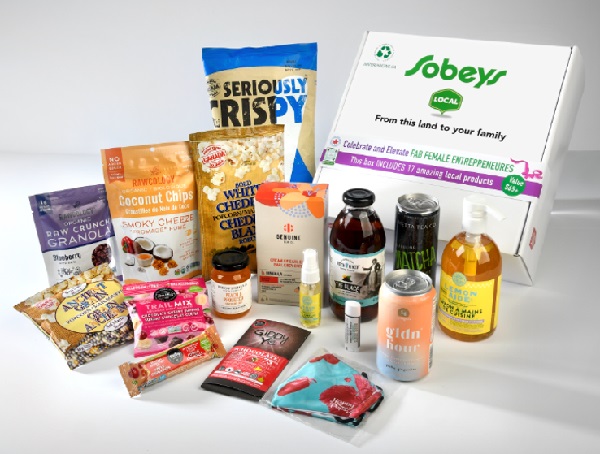
Sobeys fab female box
Each box included a card providing an overview of the women owned companies and a QR code to take customers to the Canadian Women in Food Website that helps support women-owned food and beverage businesses. The box included products from the following small businesses:
Orangeville’s Giddy-Yo founded by Bridgitte Longshore as a business selling home-grown sprouts and superfoods, such as dried berries. From there, the company began offering homemade raw dark chocolate as a healthy alternative. In the box, is hand-made and wrapped raspberry dark chocolate bar.
Located in Lincoln, Provisions Food Company is a gourmet food brand that focuses on providing products, such as jams, shortbreads and popcorn, geared towards entertainment or as sharing as a gift. The company was founded by Lori McDonald who is a trained chef and cookbook author. The company’s Peach and Prosecco Sparkling Jam is one of the items included in the box.
Mississauga’s Healthy Crunch was founded by Julie Bednarski, a Registered Dietitian and trained chef who set on a journey to create ‘good for you’ foods. Healthy Crunch makes a wide array of products, such as kale chips, trail mix and granola bars. Their trail mix and granola bars were two items included in the box.
Located in Bailieboro, Walton Wood Farm was founded by Leslie Scott. The company offers 80 unique, consciously crafted and packaged personal care products that are vegetarian/vegan-friendly, gluten-free, and free from harsh ingredients, such as sodium lauryl sulphate (SLS), Paraben and Phthalate. The company’s peppermint lip balm is featured in the box.
Accelerating business growth
Sobeys has also partnered with the Provision Coalition to develop R-Purpose MICRO which is a 12-week program to help existing smaller, local suppliers accelerate their business growth with Sobeys by building sustainability and circularity into their business models. In April 2021, the following 15 Ontario suppliers graduated the program by developing new unique storylines and stronger brand propositions to better resonate with consumers and increase their sales.
Broader public sector local food procurement
Making local food available at schools, municipal facilities, long-term care residences and other institutions across the province means that more Ontarians can get the local food that they want.
In March 2019, the province established the third goal under the Local Food Act, 2013, to “Remove Red Tape Barriers and Open the door for Local Food in the Broader Public Sector” (BPS). To support this goal, the Ontario Ministry of Agriculture, Food and Rural Affairs launched the BPS Champions program to encourage institutions to voluntarily set, track and report back to the province on achieving a local food purchasing target.
Over the past decade, Ontario’s BPS institutions (including school boards, universities, colleges, municipal childcare centres, hospitals, municipal long-term care facilities) have grown their capacity to source more local food. There are now more institutions asking for Ontario food. More institutions are reporting the ability to track their purchases of Ontario foods and a greater number of institutions have suppliers (such as, growers, processors and distributors) who are able to fulfill requests for Ontario food.
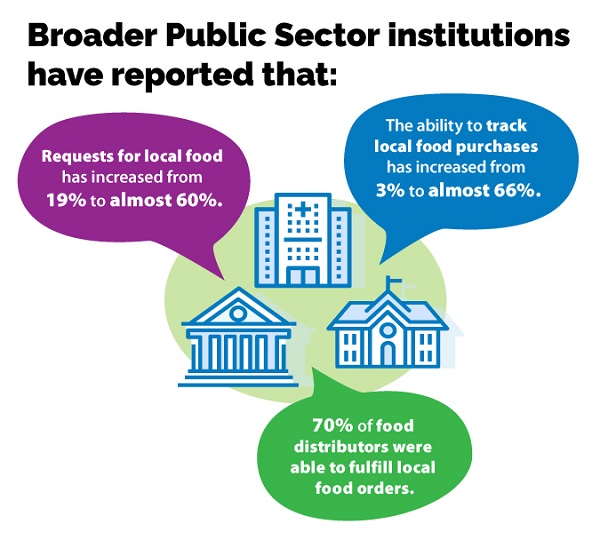
As businesses begin to reopen, government-funded institutions are cautiously and safely taking steps forward. Many other broader public sector institutions have found innovative ways of continuing to serve local food.
Local food spotlight – Six Nations Health Services
Six Nations Health Services is located on Six Nations of the Grand River Territory in southwestern Ontario providing services to approximately 25,000 band members. The Six Nations Health Services plans, develops and delivers a holistic system to address the effects of related conditions on the physical, mental, spiritual and emotional aspects of the individual and family. This also includes increasing access and awareness of traditional foods and food ways by embedding culture as the foundation in their work to promote well-being.
Much of this work is being led by Kelly Gordon whom has worked as a Registered Dietitian for over 17 years with a focus on community health. Kelly has strived to use her education and knowledge to work towards building a healthier population within her Indigenous community. As previously a Community Dietitian and currently Manager of Health Promotions for the Six Nations of the Grand River Territory, Kelly is working to integrate traditional knowledge into her everyday practice and supporting community members on their journey towards wellness.
Kelly is working to increase relationships with local traditional food producers, gatherers and providers and by supporting and offering education programs, such as cooking and nutrition classes, to ensure the increased use of foods that are original to the Six Nations of the Grand River Territory for their community members.
The local food conversation is natural to Indigenous peoples who have always known to enjoy our foods. The foods from the lands and water in which we live. These are the foods that nourish our whole self, each our mind, body and spirit.
Kelly Gordon, Team Manager of Health Promotions, Six Nations Health Services

Nourish is a collaborative initiative led by the McConnell Foundation with partners, including:
- Food Secure Canada
- Healthcare Without Harm
- HealthcareCAN
- Canadian Coalition for Green Health Care
- Academy for Systems Change
- Arrell Foundation
Through this national initiative, Kelly is also part of an Indigenous Foodways project that is working with other Indigenous advisors and health care providers to find ways to raise awareness of the importance of traditional food. For those working in Ontario’s healthcare sector looking to improve access to Traditional foods, the Six Nations Health Services offers up a model of success.
Looking ahead – what comes next for local food in Ontario?
It has been another challenging year for all of us, but as the people and businesses of this province work together in the fight against COVID‑19, we can all do our part to strengthen Ontario’s local food supply chain. Look for the Foodland Ontario logo when you’re purchasing local food – whether online, through take out, in restaurants, in grocery stores, farmers’ markets and on farm markets. We are all in this together, so supporting our local agri-food heroes is even more important now than ever before.
Text description of image:
- This is a pictographic map that provides an overview of the Journey of Ontario Food: from Farm to Fork. The pictographic map is made up of visuals and statistics that showcase the size an economic significance of the agri-food sector to Ontario’s economy.
- The journey begins at the farm represented by visuals of a barn, tractor and a truck. At this stop, there is a green bubble that explains that Ontario is home to almost 49,600 farms that grow over 200 commodities. There is also a white box that explains that Ontario agriculture contributes $8.2 billion in GDP, represents $14.74 billion in sales and supports 74,000 jobs.
- On the map, we follow the truck’s journey from the farm to a visual of a food and beverage manufacturing facility. At this stop, there is a second green bubble that explains that Ontario’s food and beverage manufacturers purchase an estimated 60 per cent of Ontario’s food related farm production. There is also a second white box that explains Ontario’s food and beverage processing sector contributes $13.8 billion in GDP, representing $44.6 billion in sales and supports more than 106,000 jobs.
- On the map, we follow the truck’s journey to visuals of a restaurant and a supermarket to signify two ways consumers can access local food products grown on the farm or processed at a food and beverage manufacturing facility. The restaurant represents the food services sector. This stop is accompanied by a third white box that explains that the food services contributes $11.8 billion in GDP, representing $30.6 billion in sales and supports more than 433,000 jobs. The supermarket represents food and beverage stores. This stop is accompanied by a fourth white box that explains that grocery retail stores contribute $6.8 billion in GDP, $46.2 billion in sales and supports more than 187,000 jobs.
- On the map, we now make the journey from the supermarket to the home. This is the final stop on the journey – from the farm to the consumers plate. This stop features a picture of the Foodland Ontario logo. Ontarians are encouraged to look for the Foodland Ontario logo to help identify Ontario food products when shopping at a supermarket, farmers’ market and on-farm market or when dining out at a restaurant. At this final stop, there is a fifth green bubble that explains that Ontario’s agri-food sector contributes more than $47.3 billion in GDP and supports more than 860,000 jobs.
Text description of image:
Pictograph of survey results from the past decade of Broader Public Sector institutions reporting that their requests for local food has increased from 19% to almost 60%, the ability to track local food purchases as increased from 3% to almost 66%, and 70% of food distributors were able to fulfill their local food orders.
